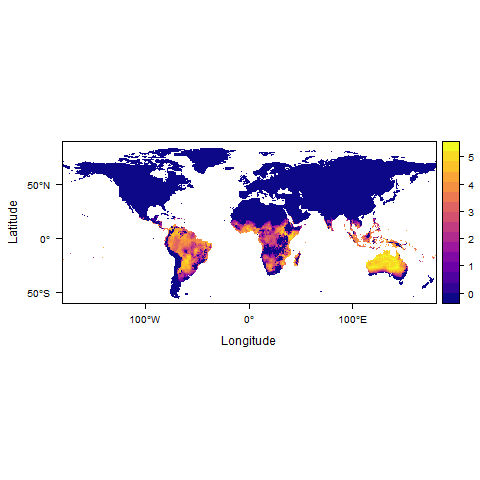
GAINESVILLE, FL – Climate variation and seasonality affect transmission and control of Zika, a study by Dr. Calistus Ngonghala (UF Mathematics, Emerging Pathogens Institute), Dr. Sadie J. Ryan (UF Geography, Emerging Pathogens Institute), and colleagues at the University of Georgia, Stanford University, and Harvard University has found. By comparing experimental Zika transmission data to annual variations in temperature, the researchers developed a temperature-dependent model of disease transmission dynamics to predict the size of outbreaks in a varying climate. The finding underscores the importance of climate dynamics and variation on the spread and control of emerging infectious diseases. This is a significant finding that will inform Zika control measures in the future.
The study “Effects of changes in temperature on Zika virus transmission and control” explores the effects of climate variation and seasonality on the transmission and control of an emerging mosquito-borne disease, Zika virus. Given the recent history of the rapid global expansion of mosquito-borne viruses (e.g. dengue, chikungunya, and Zika), as well as the challenges of controlling these epidemics, understanding the ecological drivers of transmission and their effects on potential disease control tools is crucial for improving preparedness for current and future mosquito-borne threats.
Read the full paper at the Journal of the Royal Society Interface.